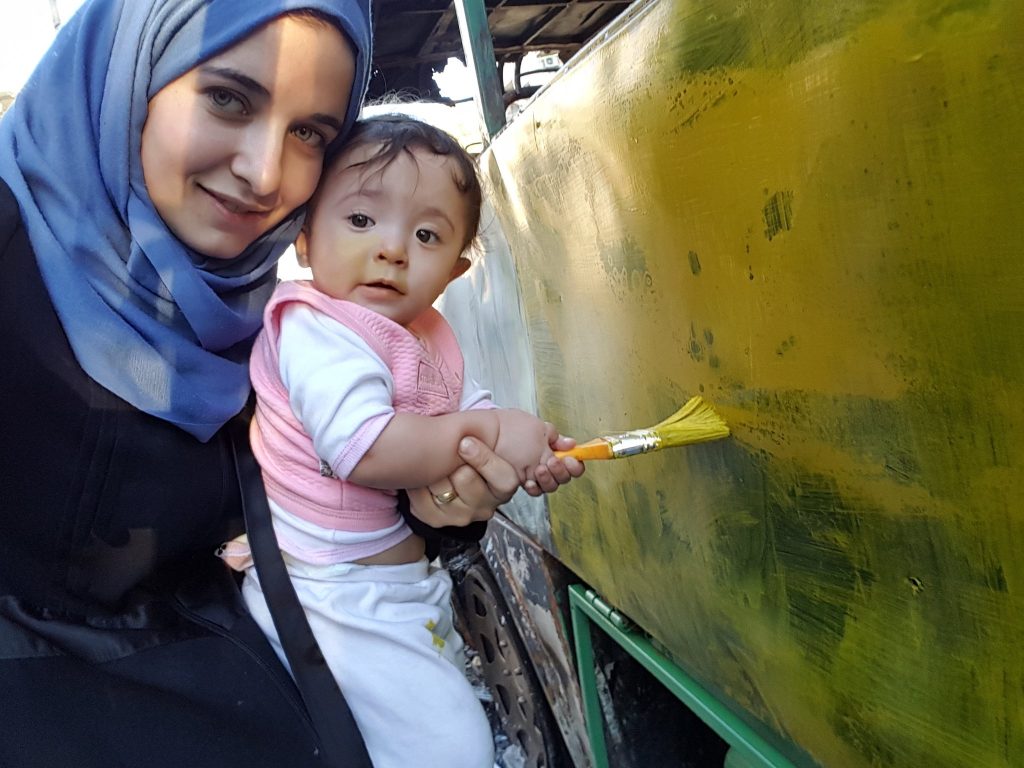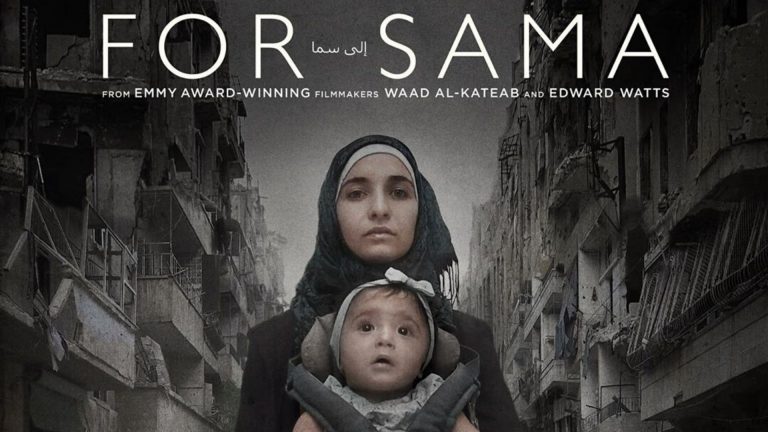Oscar Nominations:
Documentary Feature
Half-way through an already visceral documentary, we witness a stillborn birth. The small bluish baby is not moving, or breathing. The doctor works feverishly, rubbing the baby’s back, slapping its tiny butt, and probing its mouth. His frantic efforts go on for what seems a heart-breaking eternity until, suddenly, the baby jerks its hands and feet, his lungs fill, and he lets out a loud cry.
The sustained efforts to bring life to that baby serve as an appropriate metaphor for the entire movie – For Sama is about the attempts to bring back life to the death throes of Syria’s brutal civil war. The film is the product of more than five years of journalism in Aleppo by a young – 21 year old – woman, Waad Al-Kateab. She recorded more than 500 hours of her life in the Syrian city that was dictator Assad’s most severe target of oppression as he, with the assistance of Russian warplanes, bombed the hell out of his own citizens.
The honesty and humanity of her efforts have produced what I think is probably the best of many documentaries on the brutality of the Syrian war. Last Men in Aleppo, Fathers and Sons, and even this year’s The Cave, have all told slightly different stories focusing on the futile resistance to Assad’s disgusting treatment of his own citizens. But For Sama stands above the rest in its powerful treatment of both the inhumanity of the situation and the remarkable resilience of the people trying to survive. Waad is, in just a few frames, able to move the viewer from deep feelings of horror at what is happening to these people to emotions of sympathy and understanding at their remarkable persistence and humanity to each other.
During the course of the five years, Waad gets married to a doctor in the last hospital in Aleppo, gets pregnant and delivers her daughter Sama. In the final moments of the film we learn she is pregnant with their second child. And in a harrowing escape sequence, they successfully flee to Turkey. (Today she is a reporter in London, and her family, dislocated, is apparently doing well.)
The film has an impact well beyond where most documentaries can go. Part of that, I think, comes from her youth and her unwavering commitment to showing the brutal truth. Unlike many documentaries, this one is deservedly rated MA (Mature Audiences) – it doesn’t sugarcoat the story, nor hide anything from the viewer. When she comments on what is being filmed it is never to pass judgment but rather only to document her own feelings for the situation. It is as far from a ‘talking heads’ style of documentary as you can get.
The film ranks third (out of the 38 Oscar-nominated movies) in the IMDB audience rating, and comes in fifth in the critic MetaScore. It scored well above American Factory, the winner of the Oscar documentary. I can certainly understand why. My guess is that it didn’t win the Oscar simply because Academy voters found it too brutally honest.
We watch Sama’s first years in this movie and can’t help but be moved at how casual is her adaptation to the constant shelling. We see her rushed from one room in the hospital to the basement as bombs fall nearby. And we see her having a modest birthday party. The film is a journal from Waad to her daughter to explain why her parents made the decisions they did – To have her in the first place, to stay in Aleppo up until the last moment, and then, when it looks like their very lives depend on it, to leave. As Waad says at one point: “Sama. You’re the most beautiful thing in our life. But what a life I’ve brought you into. You didn’t choose this. Will you ever forgive me?”
I’ve written before that one of the difficulties in evaluating documentaries is that it is often difficult to separate out the feelings for the subject of the film and your evaluation of the filmmakers craft itself. Sometimes you can find one of them attractive, but not the other one. There is no such problem in this movie because the filmmaking is so personal and yet so poignantly honest, that the two actually start to merge. I think you will have no problem being overwhelmed by the entire package.
A question viewers will have at one point is why would anyone want to bring a child into such a world. But the beauty of this exceptional film is that it answers that question so affirmatively. They are fighting, at least until the end, for her. And that kind of explains just about anything humans do – for their children and the next life. For Sama. An exceptional film. (5 Stars)


